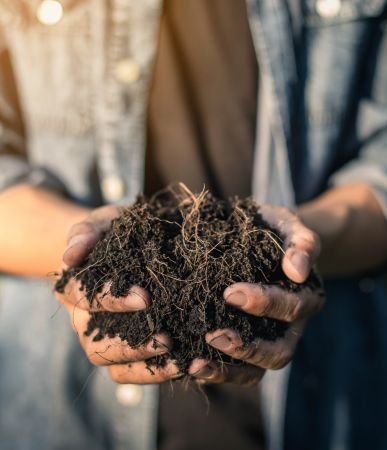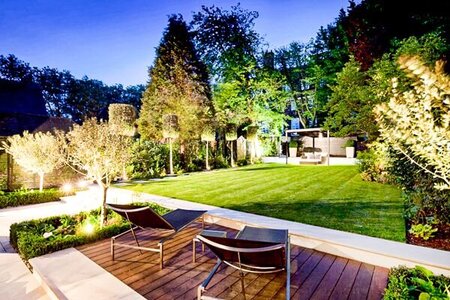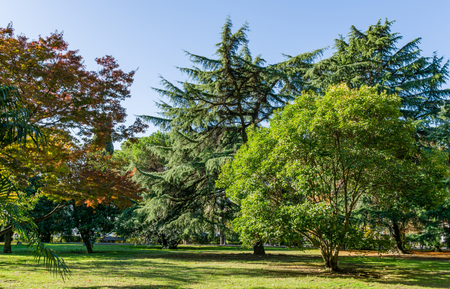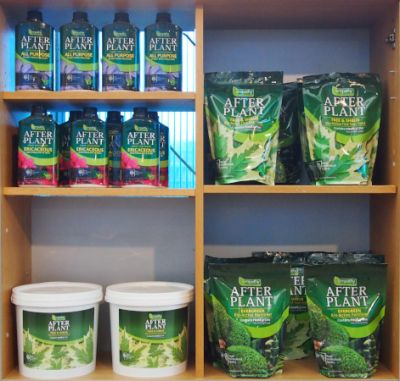
Now that summer has come to an end, it's a good idea to have a closer look at your garden. Of course, it’s advisable to tidy up your garden, terrace or balcony and provide it with cheerful plants with Indian summer vibes. However, there are more things to consider. It’s more essential than ever to think about the sustainability of your outdoor space. Our earth has to endure quite a lot, and everybody is aware that our climate is changing. Since we all know that a better world starts at home, now is the time to take a critical look at your outdoor space: are all those garden tiles really necessary, is there enough green to stimulate biodiversity and do you use consciously produced products to take care of your plants? Lift your garden, terrace or balcony to a more sustainable level with our help! You then not only contribute to a better world, but you also get to have a lot of fun!
Sustainable gardening
With a little creativity, you can get a lot more out of your garden – especially when it comes to sustainability! Why not give certain items a second life, and have you ever considered buying a rain barrel? When adding lots of plants and trees to your garden, you immediately take your outdoor space to a more eco-friendly level. The possibilities are endless! Here we would like to focus on composting vegetables, fruit and garden waste: what is compost, how do you make it, and what does it do for you and your garden? We have listed several tips and tricks!
 1. What is compost?
1. What is compost?
Give your garden a boost by providing the soil with a good layer of compost. Everything that grows and blooms comes from the earth. Healthy soil with perfect drainage is therefore essential. You use plants to lure birds and insects into the garden and thus create greater biodiversity. Compost can help improve your soil quality and thus your green. Compost can also be used as a mulch to cut down on water loss or make the soil more fertile. Let's start at the beginning: what exactly is compost? Compost is a raw material consisting of vegetable residues. Composting is, therefore, the natural breakdown of ‘green waste’. The organic material that remains is rich in humus and is, therefore, not only a fertilizer but also a soil improver. When the soil is depleted, and the organisms that live below the surface are not getting enough nutrients, it’s important to bring the soil back in better condition with compost!
2. Start composting
Of course, you can buy compost, but it’s also enjoyable and easy to make yourself. You can do this by saving the organic waste and depositing it in a special compost bin or barrel. By using such a barrel, the garden doesn’t get too messy, and the composting process is accelerated. You can also place such a barrel in a small garden, on the balcony or in the kitchen. Another option is to make your own compost heap in a wooden container. Mix all kinds of waste and make sure that the waste isn’t too bulky. However, certain types of (green) waste slow down composting and should therefore not be added to the compost heap. What is not allowed in the compost bin?
- meat and fish
- cooked food
- bones
- sick plants
- branches of the conifer
- orange peels
- large amounts of grass
3. What to keep in mind while composting
Other items, such as vegetable and fruit waste, coffee, crushed wood and plant residues, are allowed on the heap. Because your household, garden and kitchen waste doesn’t have to be transported to another location, composting it yourself is an environmentally conscious choice in any sense. Put your compost bin in a light spot in partial shade. A few hours of sun a day is sufficient. In addition, ensure good ventilation and sufficient humidity to speed up the process.
4. A healthy ecosystem
The result of the composting should be a dry substance that smells like forest soil. Add the compost to the top of the soil layer. The aim is for the soil to retain the right amount of water naturally. This will therefore also improve the quality of your plants. You’ve come to the right place for the necessary mature plants, shrubs and trees to lift the garden to a more sustainable level. We sell our mature plants, shrubs and trees in the online shop, but we can imagine you want to stop by our nursery, covering more than 18 acres, to see them in real life. We offer more than 100,000 mature plants, specimen trees and shrubs, so there’s a lot to choose from. Plan your visit to our nursery to learn more about all that we can contribute to your project.



